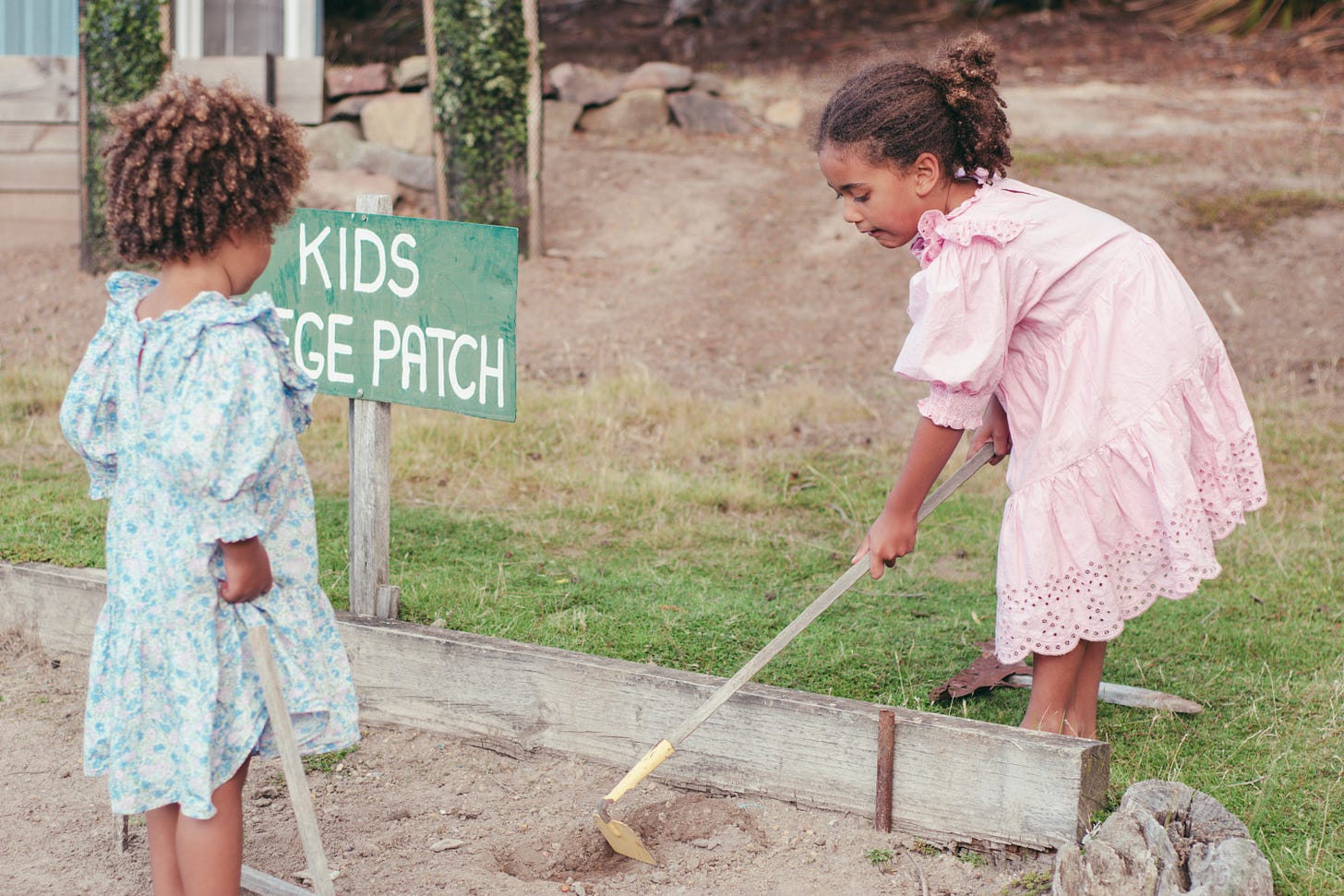Three Cheers for New Jersey
How New Jersey is showing the way for climate change education - and why this matters so much.

Some of the most important conversations in the country are taking place in New Jersey, led by first graders, and focused on shark poop. New Jersey is the first (and thus far only) state that requires climate change education be integrated into most subjects from kindergarten to 12th grade. Their approach teaches kids three critical lessons that we all need to internalize to solve the climate crisis:
Nature is and should be understood as a web of connections. Thank you, Humboldt! (I wrote about him last week)
One of the most profound connections is how humans engage with and influence other species on this planet.
Humans are uniquely blessed with the ability to understand, and agency to solve, complex problems like climate change.
I gleaned these learnings from a recent New York Times article that profiled the climate lessons at New Jersey’s Slackwood Elementary School. Here’s an except:
One morning late in May, Ms. Liwacz announced that her first graders would be talking about cause and effect, and that the day’s story was about what would happen if sharks disappeared.
Navya’s hand went up. “I learned, well, fish eat shark poop,” she said.
“Well, they do,” Ms. Liwacz replied, to a few giggles. “And fish need that, right? Why?”
Navya had a ready answer. “Because then all animals need food and water to, um, survive, and fish eat shark’s poop to survive,” she said.
“And so what if sharks disappeared?” Ms. Liwacz said.
“That’d be bad for the fish,” Navya said.
Ms. Liwacz next read a story detailing the role of sharks in keeping ocean water clean and ecosystems balanced, which in turn benefited land mammals. Then she paired the students to discuss what would happen if sharks vanished, prompting more chatter about the importance of poop.
Cause and effect. Nature as a massive set of interlocking connections. This is pure Humboldt — and I love it!
This chain of cause and effect extends to humans. Kindergarteners at Slackwood learn how bees pollinate plants, which encourages them to see bees as friends, not as enemies and potentially attackers. First graders learn about composting and get their hands dirty in the school compost bin next to the butterfly garden. Students test chemical and natural fertilizers against each other in garden beds, only to discover that the natural one performed better (Humboldt would approve of such a hands-on approach to science). By exploring nature and getting their hands dirty, these students are connecting to the natural world in a deep way.
Learning about cause and effect within nature is great, but what makes New Jersey’s approach so powerful is that it teaches kids that they are problem-solving agents of positive change. From the Times “instead of focusing on the doom and gloom, the standards are designed to help children connect with what’s going on in the natural world around them, and, crucially, learn how to solve problems.”
The article’s examples of how kids imagine using their agency for positive change are just delightful. When the second graders learn that Antarctic warming will imperil penguins, they came up with a variety of solutions ranging from having thee penguins live inside their fridges to giving them floaties, having them move to the US (where it’s cold) for the winter, and helping them learn to build igloos. When students learned about pollution, plastics, and the garbage patches in the ocean, one second grader suggested that we prevent plastic from getting into waterways at all (yes!).
These children are taught that they can be part of the climate solution by harnessing their problem solving skills. While relocating penguins to our fridges may sound silly to adults, it makes sense to a small child and is rooted in a desire to drive positive change. As children learn more, their ability to identify potential solutions will grow. In fact, preventing plastic from getting into waterways gets at UN Sustainable Development Goal (SDG) 14: Life Below Water.
If these children hit on part of an SDG in second grade, just imagine what they’ll think of in high school? And if every school in the country taught climate this way, imagine what it’d do for our collective belief that we have the ability, skills, and collective power needed to solve the climate crisis?
Such a future would give me even more hope for the future. My oldest kid is finishing up second grade at an amazing public school in Seattle. He’s a smart, thoughtful, and empathetic kid who loves nature and solving problems, but climate change isn’t a fulcrum of his education, and according to him, isn’t discussed. I think about his little brother who will be starting kindergarten in the fall, and all of their amazing, creative, and smart friends. I think about how much fun it’d be to talk to them over dinner about how they’re brainstorming ways to save the penguins from a warming Antarctica at school. I think about all of the great solutions they’d come up with.
But mostly, I think about how I can start instilling the three lessons from New Jersey in each of them and their baby sister, and I hope that other states will follow New Jersey’s lead.



How about 3 cheers for problems-solving agents of positive change (not just New Jersey, although cheers for them too for leading the way on this) :)